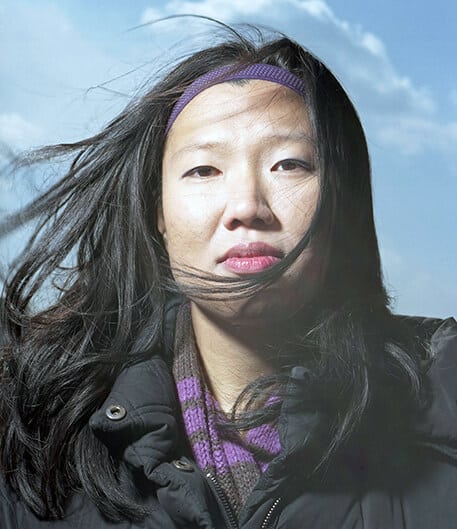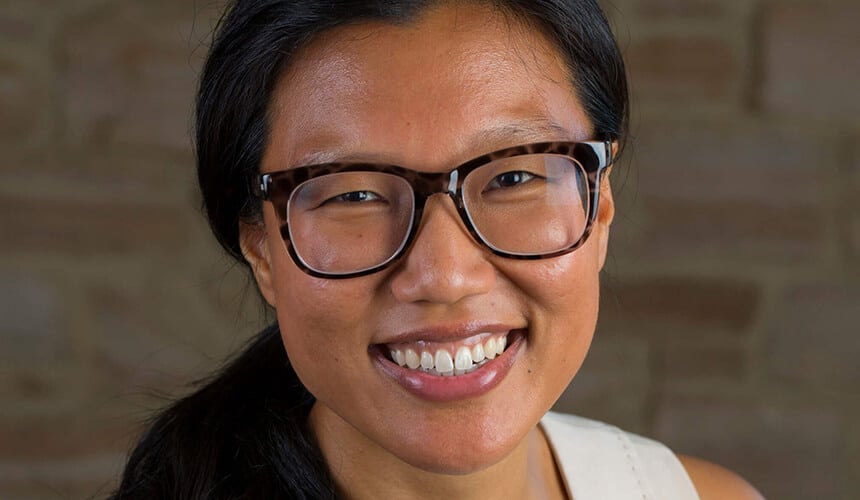Laura Klunder
Social Change Leader
On January 14, 1985, Laura Klunder was recorded as K85-160 — the 160th Korean child her agency had put up for adoption that year. She was one year old when a couple from Wisconsin welcomed her into their home. Now Klunder has that same adoption number tattooed on her arm to serve as a constant reminder of where she came from and how important her work is.
While at UW–Madison, Klunder became involved with the MultiCultural Student Coalition. In 2008, she accepted the first annual UW–Madison Outstanding Women of Color Award for her work as a residence hall manager.

Image courtesy of Mark Neville / New York Times.
As a representative for Adoptee Solidarity Korea, Klunder continued to advocate for social justice by engaging fellow adult adoptees in strengthening Korea’s social welfare system and fighting discrimination against unwed mothers.
“I helped bring together 200,000 adoptees who have been denied access to their roots because of global systems of social injustice,” she says.
In 2012, Adoptee Solidarity Korea succeeded in helping to secure an amendment to Korea’s adoption law. It provides support for mothers who are considering putting their child up for adoption, as well as a registration process that will allow adoptees to trace their family history. Klunder’s advocacy efforts have been featured in the New York Times Magazine and other news outlets.
She also served as an adoptee relations coordinator for KoRoot: House of Roots. There she initiated the Adoptee Leadership Dialogue, a series that brought together multiple Korean adoptee-advocacy organizations and providers in an effort to start working together.
After four years of grassroots organizing in South Korea, Klunder returned to UW-Madison in 2015 to work as a social justice education specialist with the Multicultural Student Center. She is now with the UW–Madison Division of Student Life, serving as the program director for inclusion education for the Our Wisconsin initiative. She is responsible for working with students to change campus culture so that all students can enjoy the best possible Wisconsin experience.
“I’m grateful to return to Madison,” she says. “It’s a privilege to give back to the communities that inspired my leadership for social change.”
 58° F
58° F